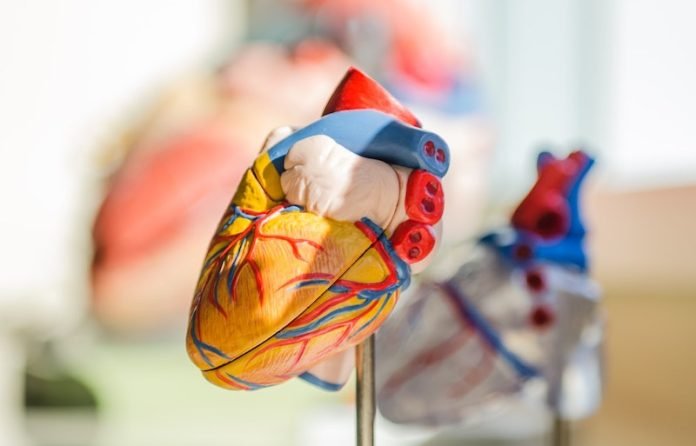
In a study from the Centro Nacional de Investigaciones Cardiovasculares and elsewhere, scientists found that acquired mutations in the gene encoding the protein p53 contribute to the development of heart disease.
Known as the “guardian of the genome,” p53 helps to maintain the integrity of the hereditary material inside cells by regulating multiple cell functions in response to cellular stresses.
Every day, an adult generates hundreds of thousands of blood cells. Though essential, this process unavoidably promotes the appearance of mutations in the progenitor cells responsible for this production.
The presence of acquired p53 gene mutations in blood cells increases the risk of developing various types of cancer, including blood cancers.
In the new study, the team found that p53 mutations also accelerate the development of atherosclerosis, the underlying cause of most heart disease.
They analyzed sequencing data from the blood cells of more than 50,000 people.
The team found that carriers of acquired mutations in p53 had a higher risk of developing coronary heart disease and peripheral artery disease, and this effect was independent of established cardiovascular risk factors like hypertension or elevated blood cholesterol.
Based on these results, the scientists conducted functional studies in animal models of atherosclerosis, into which they introduced cells carrying p53 mutations.
The results showed that mice carrying these mutations developed cardiovascular disease more rapidly, mostly due to an abnormally elevated proliferation rate of immune cells in the artery walls.
Previous work by the same group had already demonstrated that several of these mutations, such as those that affect the TET2 gene, contribute to the development of atherosclerosis and heart failure.
Now the new results extend the findings to include mutations in p53 and the development of peripheral artery disease, a condition that is especially prevalent in the elderly population.
If you care about heart failure, please read studies about diabetes drug that could revolutionize heart failure treatment, and this drug can be a low-cost heart failure treatment.
For more information about heart health, please see recent studies about small surgery that can prevent strokes in people with heart issues, and results showing this drug combo can cut risk of stroke and heart attack by half.
The study was conducted by José Javier Fuster et al and published in Nature Cardiovascular Research.
Copyright © 2023 Knowridge Science Report. All rights reserved.



